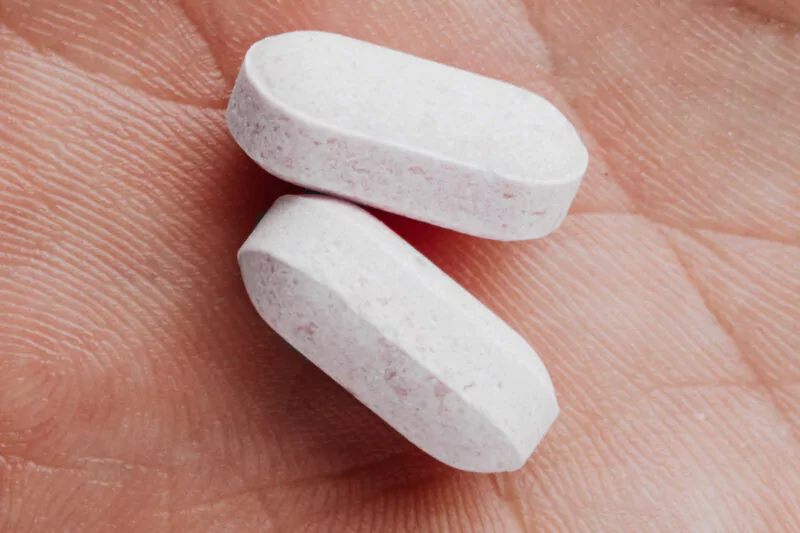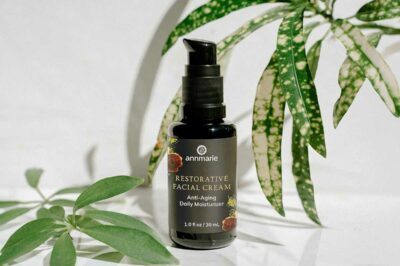Table of Contents[Hide][Show]
The human body contains collagen in abundance, but collagen production decreases in the body as we age. That is why in recent years, collagen supplements have been a hit since people have discovered how beneficial this protein can be to the hair, skin and bones. Collagen has other functions, too, like helping your blood clot.
Does Collagen Help Skin, and Can It Improve Skin?
Absolutely! Incorporating this protein can be one of the best beautifying rituals you introduce, as its many benefits truly help you retain your youthful glow. There are many wonderful advantages of using collagen, so keep reading to understand this protein fully and how it beautifies the skin.
There are two forms of collagen, endogenous and exogenous.
- Endogenous collagen is natural collagen synthesized by the body. It has various essential functions in the body, and its breakdown and depletion are linked to several health problems.
- Exogenous collagen is synthetic collagen that is sourced from outside sources like supplements. This collagen is used to repair body tissues and for medical and cosmetic purposes.
What Is Collagen?
Collagen is the glue that holds the body together. It is a hard, insoluble and fibrous protein, and the most abundant in our body. Making up to one-third of proteins in the body, collagen is found in the bones, skin, muscles, tendons and ligaments. You can also find collagen in the cornea, blood vessels and teeth.
Collagen molecules are tightly packed together to form long thin fibrils that act as supporting structures and anchor cells to each other, which gives the skin strength and tightens it up.
There are sixteen types of collagen, but 80-90% of them belong to four main categories of collagen. These types of collagen are:
- Type I collagen: Contains densely packed structures that are very stretchable and more robust than steel. It provides structure to teeth, bones, fibrous cartilage, tendons and connective tissues, making up 90% of your body’s collagen.
- Type II collagen: Contains loosely packed fibers found in the elastic cartilage that cushions your joints.
- Type III collagen: Supports the structure of arteries, muscles and organs.
- Type IV collagen: Helps with filtration and is found in your skin layers.
To deeply understand this fantastic protein, you can learn more on “What’s Collagen Anyway?”
Is Collagen Good for Skin?

Collagen affects the skin in various ways. As you age, your body releases less collagen. So, once you start supplementing collagen, it helps strengthen your skin by improving its hydration and rejuvenating the skin. Dry skin often results in wrinkly skin and the formation of fine lines. Using collagen will help prevent the skin from drying.
When you take collagen supplements continuously, studies show that this actually stimulates the body to produce collagen on its own. When this happens, the skin will look more youthful and radiant. There are also claims that collagen supplementation could help prevent skin conditions that cause redness.
Beauty Benefits of Collagen
Now that we know that collagen has many benefits for the skin, let’s dive into the way this ingredient can help further bring out the beauty of your features.
May improve the health and look of your skin
Collagen benefits the skin by making the skin more firm, improving the skin’s hydration and making the skin look plump, helping to reduce the appearance of fine lines. Several studies dive into how collagen can help reduce the characteristics of mature skin, such as fine lines and wrinkles, which usually indicate signs of aging.
Because collagen supplements really drive up the skin’s ability to look renewed, it is why this product is often considered a beauty boost and most people who incorporate this product have a radiantly healthy glow.
Learn more about the role of collagen in your skin and how it differs from elastin, which also affects skin’s youthful quality.
May increase the strength of your nails
Brittle nail syndrome is quite common these days. This syndrome is characterized by nail surface roughness, peeling and raggedness. Taking collagen can help strengthen brittle nails. When nails are more robust, they stop breaking easily. A study proved that taking oral collagen supplements within four weeks of ingesting these supplements showed excellent results in nails being stronger and longer.
Interested in more nail care? Check out Papa Rozier’s Nourishing Nail and Cuticle Oil in our Favorite Brands Marketplace. It’s formulated with 100% natural oils to soften, hydrate and boost the strength of your nails and cuticles. In addition to other nail care methods (such as taking collagen!), use this product overnight to restore moisture and encourage strong nail development.
May help your hair grow longer and fuller

The physiology of hair follicles is complex, and many factors must be considered for optimal scalp health. A beauty benefit of collagen in regards to hair is how it helps hair grow more robust and fuller on the head. Collagen comprises three non-essential amino acids—glycine, proline and hydroxyproline. Proline is the main component of keratin (a protein that makes up your hair and nails), so consuming collagen gives the body the building blocks for a healthy scalp.
Graying hair that comes with age is primarily a genetic issue but can also result from free radical damage. Many other factors can result in hair losing its melanin pigmentation, like free radicals resulting from poor diet, stress and environmental pollutants that can damage melanin-creating cells. Collagen can fight free radicals, and help prevent hair from graying and slow down age-related graying.
For growing long, beautiful hair fast (and naturally), head over to this article for more tips & tricks to grow your hair naturally.
May help maintain good posture
As you age, your bones become weak. You will find that most suffer from diseases like osteoporosis in their later years (1). The main symptoms of osteoporosis include back pain, stooped posture, loss of height and brittle bones. A stooped posture can be very unflattering. To maintain your beautiful posture even as you age, you’ll want the help of collagen supplements.
May boost muscle mass
With age, some people lose muscle mass—especially those with conditions like sarcopenia. If you love your time at the gym, it is possible that you prefer looking toned to show the time you’ve spent there. To avoid age-related diseases like sarcopenia, you need to consume collagen supplements.
According to studies, those people who consume collagen supplements and also workout tend to gain more muscles than those who simply workout but don’t take the supplements. Collagen supplements may stimulate the synthesis of muscle proteins like creatine which stimulate muscle growth (2).
May help with acne and rashes
Some health practitioners claim that consuming collagen supplements may help heal leaky gut syndrome. The main symptoms of this illness include gastrointestinal symptoms and skin issues like acne, rashes and eczema. If you suffer from such skin symptoms, it may be helpful to check with your doctor to determine whether or not these issues are due to leaky gut syndrome. Once the collagen supplements start working on your body, you will find it much easier to manage such issues as you may stop having the physical and internal symptoms of leaky gut syndrome.
May help in weight loss
There are some claims that collagen supplements may help in boosting metabolism. When you have a high or increased metabolism, losing weight is easier. It could be due to the amount of proteins in collagen, but we don’t know for sure. Either way, some people who consume collagen supplements report having increased their metabolism and lost weight quickly.
May promote heart health
What’s the need for pretty skin, nails and hair if you don’t have a healthy heart? We need a healthy heart to survive. Collagen supplements are great for heart health; when you consume collagen, they help provide structure to your blood vessels and arteries ensuring blood and oxygen reach your heart. Without sufficient collagen, the arteries become less elastic and flexible which may result in atherosclerosis.
Is Oral Collagen Effective for Skin?
Yes, it is. Collagen effects on the skin are visible as it improves skin, providing a fresh and revitalized look. You can eat foods rich in these nutrients and vitamins or supplement them. They include:
- Vitamin C: Helps restore the skin naturally by improving its appearance to look brighter and stimulates collagen synthesis. Foods primarily rich in vitamin C include citrus fruits, strawberries and bell peppers.
- Proline: Necessary for collagen biosynthesis and maintains tissue integrity, beautifying the skin. Foods that contain vast amounts of proline include egg whites, wheat germ, cabbage, asparagus, dairy products and mushrooms.
- Glycine: Increases moisture retention, and promotes skin repair and regeneration. Glycine can be found in chicken skin, pork skin and gelatin.
- Copper: Activates the lysyl enzyme oxidase, which helps in collagen maturation. Large amounts of copper are found in sesame seeds, cocoa powder, cashew nuts, lentils and organ meats.
Pair your wellness routine of ingesting collagen with topical applications to maximize your skin benefits. Take a look at our revitalizing and anti-aging skin care formulas with our bestselling Restore line.
Frequently Asked Questions
1. Does collagen make your skin oily?
No, it does not. Collagen helps your skin retain more moisture and remain hydrated, but it does not make it oily (which often happens when your skin’s natural oils are out of harmony). Collagen can actually be helpful for people with oily skin.
2. Is collagen good for acne-prone skin?
Yes, it is. Evidence suggests that collagen can help with inflammation—which is the leading cause of frequent breakouts—and promote an even skin tone.
3. Can collagen cause skin rash?
Collagen can only cause rashes if the product contains additives, heavy metals, preservatives and poorly sourced animal products. We always recommend reading the ingredients of your product carefully and finding a brand you trust.
4. Does collagen improve skin tone?
Scientific research has proven that collagen can lessen the appearance of wrinkles and improve the skin’s level of hydration and skin tone.








Leave a Reply